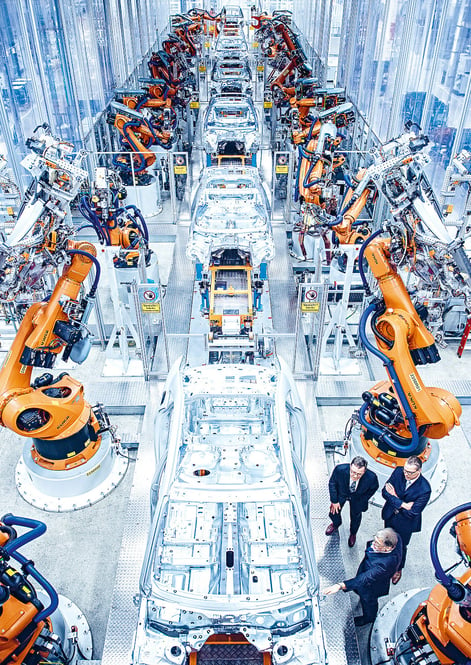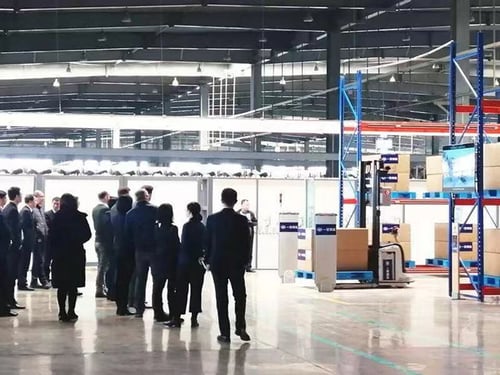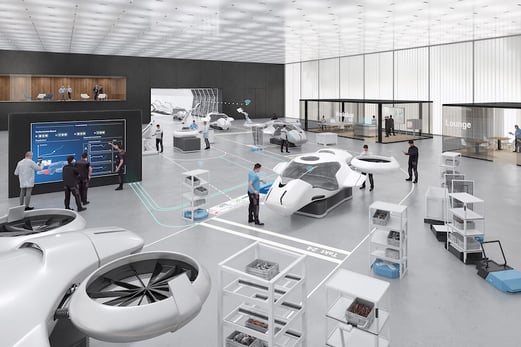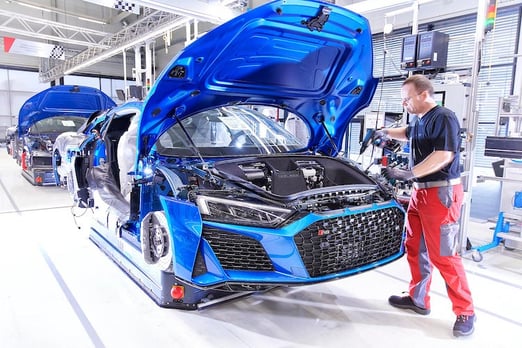AMR Solution - A vaccine for Automotive Industry?
Before the coronavirus outbreak in January this year, China was the world’s largest automotive market, both in terms of production and sales. Last year, the country produced almost 26 million vehicles of all types, which is approximately three times as many as the nearest competitor, the US, which produced just over 8 million.

However, the spread of coronavirus, also called COVID-19, has almost destroyed the market.
According to the China Passenger Car Association, “barely anybody” has booked to buy a vehicle in the first half of February.
The CPCA’s statistics show domestic sales were down by a staggering 92 per cent in the first two weeks of February this year.
Last year, almost 60,000 vehicles were sold in the first couple of weeks in February. This year, in the same period, fewer than 5,000 were sold.
Moreover, because the supply chains of automotive manufacturers tend to be global, the problems are going to start affecting the production side as well.
The pandemic’s threat to public health has led to large disruptions in many industries as workers have been told to stay at home or forced to take off time because of the infection risk.
Manual workers are still an essential part of the global supply chain system, and without them, everything grinds to a halt, which this pandemic has evidently proven.
The logistics and supply chain sector already have great difficulty attracting and retaining staff at the best of times, with 522,000 jobs unfilled in the US, alone, according to the National Association of Manufacturers.
Now, some analysts are saying that the best way forward is by increasing the level of automation in the supply chain, which means, for example, more autonomous mobile robots in warehouses and more unmanned intralogistics vehicles.
.png?width=471&name=Smart%20Factory%20for%20automotive%20(2).png)
Robots have become easier to program and implement, and an entire warehouse can be fitted out with a robotic system within weeks.
Given that coronavirus is likely to hang around and cause havoc for many months to come, it may be possible for many logistics operations to avoid the worst effects of the disruption.
Some warehouses have already implemented autonomous mobile robots and have seen significant increases in productivity and efficiency. Robotic picking systems, for example, are approximately eight times more productive than manual systems.
The largest and most well-known automotive companies in China are:
- SAIC Motor;
- Dongfeng;
- FAW; and
- Chang’an.
Others include BYD, Beijing Automotive Group, Brilliance Automotive, Geely, Guangzhou Automobile Group, Great Wall, Chery and Jianghuai.
Many of these companies have agreed production and marketing partnerships with overseas companies, including German giant Volkswagen, American leader General Motors, and Japanese big-name Honda.
However, very few of these companies have updated their supply chains to include robotics. Some uses automated guided vehicles, or AGVs, which are not as flexible, fast or as easy to implement as the new generation of autonomous mobile robots, or AMRs.
AGVs tend to require magnetic strips to be placed on the ground along their path, from which they do not diverge. AMRs, on the other hand, can move freely in any direction, calculating their own routes based on the mapping and location software they have installed into their operating systems. They can also charge themselves at the end of the day.
At least one of the companies on the above list has been testing robots and unmanned vehicles in anticipation of implementation at some point. FAW, which has agreed a partnership with VW, has been testing Geek+ warehouse robots as well as unmanned forklifts in its “Logistics Lab” in China.
FAW produces approximately 3 million vehicles a year, using what might be called traditional manufacturing and supply chain technologies. Last year, it decided to work with Geek+ to drive its “intelligent innovation reformation by offering a full-process automatic in-plant logistics solution”.

The companies have found that the new robotic systems have greatly improved work efficiency, increased operational accuracy, and reduced labor density and risks.
Several other leading automotive companies in Europe, notably BMW, have invested significant amounts in researching the implementation of robots in their manufacturing and supply chain systems.
Some have even been looking at dispensing with the assembly line – which has become synonymous with automotive production over the past 100 years or so – and replacing it with robots.
Audi, for example, has been building its new R8 sports car using autonomous mobile robots to carry the vehicle around the factory from one work cell to another.


These kinds of technologies are so new that many are still at the experimental stage. But the devastation caused by coronavirus may accelerate their implementation and the automotive industry may end up with a far more efficient and reliable supply chain than ever before.
If you want to learn more the automation trend, download our white paper now: 
About Geekplus
Geekplus is a global leader in mobile robotics technologies. We develop innovative robotics solutions for order fulfilment. More than 850 global industry leaders use our solutions to realize flexible, reliable, and highly efficient automation for warehouses and supply chain management.
Media Contact
Marie Peterson, VP International Marketing & Communications
Marie.peterson@geekplus.com
